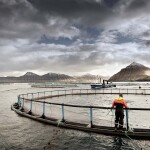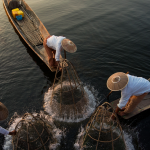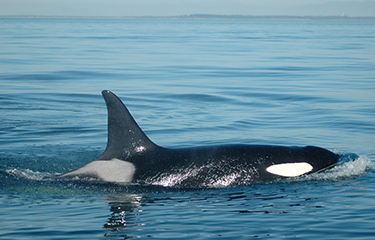After successfully closing the chinook salmon trolling fishery in the southeast of the U.S. state of Alaska with a lawsuit, the Wild Fish Conservancy plans to petition the federal government to protect the region's chinook salmon habitat under the Endangered Species Act.
According to a 24 May letter sent by WFC to Alaska Department of Fish and Game Commissioner Doug Vincent-Lang, the group plans to file a petition seeking protection for chinook salmon habitat in Southeast Alaska after 30 days.
Vincent-Lang told SeafoodSource that since there is no petition filed yet, it’s not clear which chinook stocks WFC plans to get listed. Even so, he expressed confidence that state policies are effective in managing stocks and no chinook salmon stocks are in danger of extinction.
“The state does not believe that any Alaskan chinook salmon stocks are endangered or threatened with extinction in the foreseeable future. We have a constitutional obligation to manage for sustained yield,” Vincent-Lang said, pointing to Alaska’s sustainable salmon fisheries policy.
“In no way are the status of the stocks jeopardized or threatened with extinction,” he said. “There is a big difference between not having enough surplus fish to support a directed fishery and a stock being threatened with extinction. ADF&G foremost salmon management priority is to provide for the long-term health and sustainability of the state’s stocks. The ESA is not the right tool to address issues related to low productivity.”
The ESA has been used to protect chinook salmon runs on the west coast of Alaska since the 1990s, and NOAA Fisheries is considering expanding those protections to other areas.
The Native Fish Society, the Center for Biological Diversity, and the Umpqua Watersheds have been working in recent years to get the Oregon coast and Southern Oregon and Northern California coastal chinook fisheries protected under the ESA. While NOAA Fisheries rejected the group’s 2019 petition seeking protection specifically for spring-run salmon, a separate petition filed in 2022 has had more success. In January, NOAA Fisheries released its 90-day finding, stating it may be warranted to list the Oregon Coast and Southern Oregon and Northern California Coastal chinook as an evolutionarily significant unit of the species and would conduct a status review.
WFC has been battling with the Alaskan government and NOAA Fisheries in court over the future of the Alaska chinook salmon trolling fishery, culminating with a judge’s order that has forced the government to cancel the commercial fishery this summer. The government now is hoping the 9th Circuit Court of Appeals will intercede to allow the fishery to open on 1 July.
Claiming that commercial harvesting of chinook salmon in Southeast Alaska was starving killer whales who depend on the fish as prey, WFC sued the National Marine Fisheries Service in 2020. WFC argued that the documentation supporting the commercial fishery was flawed, and in 2021, the U.S. District Court for the Western District of Washington agreed. In May, the court vacated portions of that documentation, effectively closing the commercial harvest before it began this season. NOAA Fisheries is reportedly working to correct the documents.
The state of Alaska, NOAA Fisheries, and the Alaska Trollers Association have appealed the district court’s decision to the 9th Circuit Court of Appeals, hoping to have the temporary restraining order rescinded. WFC is opposing that action and asking the court to also stop a salmon hatchery program run by the state, a prey increase program designed to provide more food for wild orcas. WFC claims that the hatchery program actually threatens wild salmon stocks, and therefore orcas’ food source.
Alaska's congressional delegation, U.S. senators Dan Sullivan and Lisa Murkowski, as well as U.S. Representative Mary Peltola, have filed an amicus brief in the case in support of the state of Alaska, Murkowski told reporters in a media call last week.
“We have a real challenge in front of us with the litigation that was filed in the Western District of Washington by the WFC,” Murkowski said. “This, as we know, is an extraordinary threat to our Southeast troll fishery which is due to commence … 1 July.”
Murkowski also said the U.S. Department of Justice was planning to appeal the ruling, as the judge’s decision could have far-ranging implications for commercial fisheries.
“My fear is that if this litigation is successful, it will not be the only time that we see the threat of litifation using the Endangered Species Act, the ESA, to attempt to shut down our fisheries,” Murkowski said. “We have enough challenges to our fisheries … We don’t need the lawsuits.”
Alaska’s chinook salmon fisheries are well-managed and don’t need to be shut down, she said. Vincent-Lang agreed.
“While abundance and productivity of some stocks have taken a dip in recent years, the state has and will continue to take strong action to rebuild these stocks,” Vincent-Lang told SeafoodSource. “Measures include time and area fishing closures as well as reducing bycatch and take in intercept fisheries.”
Photo courtesy of Shutterstock / Monika Wieland Shields







